The public engagement with science (PES) Working Group provides a mechanism for strong reciprocal connection between the proposed (PES) research and practice within the LTER Network. The Working Group brings together site leaders (scientists) and PES-related staff (outreach professionals) from ~7–9 sites across the network, including the 3 case study sites, for regular gatherings on Zoom. These gatherings focus on the progress of the project and PES-related interests among participants.
The PES Working Group provides a mechanism for LTER leaders to inform and co-interpret the PES research activities described above, opening explicit opportunities for carrying this research into practice and for practice to inform research (Peterman et al. 2021). The Working Group also builds the long term capacity of the LTER Network to advance PES practice.
Working with PES Working Group participants broadens the contexts of the three case study sites. Non-case study sites participating in the Working Group receive up to $5,000 per site to implement a PES seed project. Eligible project are defined by needs at individual sites, and might include, for example:
- bringing in a PES training opportunity such as the STEM Ambassadors Program,
- bringing in a facilitator for a PES strategy planning session, or
- hosting a PES event such as an open-house or roundtable dialogue.
Participating Sites and Seed Projects
Beaufort Lagoon Ecosystems LTER
The Beaufort Lagoon Ecosystems Long Term Ecological Research (BLE) site studies the unique interactions between land and sea along the northern Alaskan Arctic coast. Focusing on biogeochemical and biological dynamics, BLE investigates seasonal changes and long-term impacts on lagoons and other aquatic sites, which provide crucial habitats for migratory species which are important to local Iñupiaq communities.
For their PES seed project, Iñupiaq community members and Beaufort Lagoon Ecosystems LTER researchers are co-creating a fishery monitoring program in the region, where community members collect hydrographic data that researchers can use to assess local fish populations. The project will kick off with a town meeting to formalize the program and gather initial community input.
Participants: Jim McClelland, Ken Dunton
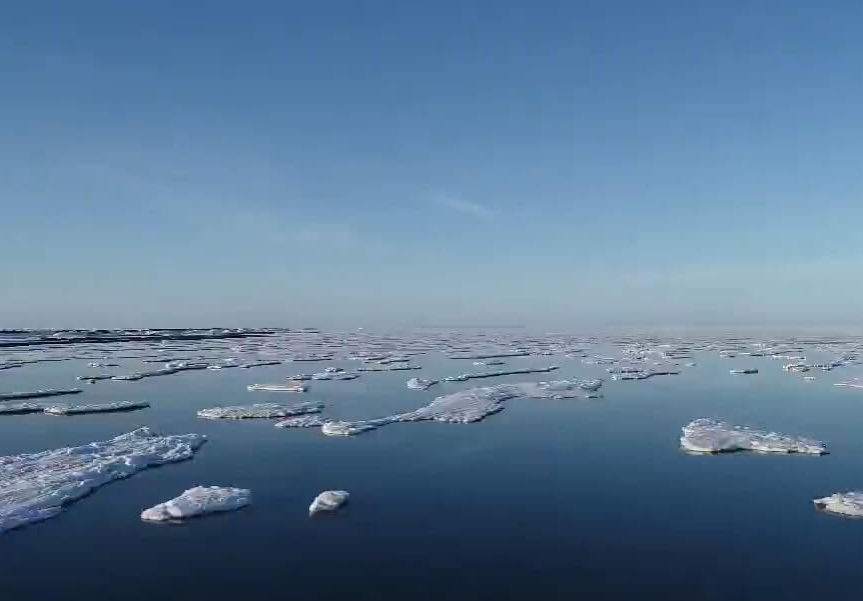
Credit: BLE LTER
Kellogg Biological Station LTER
The Kellogg Biological Station Long-Term Ecological Research (KBS LTER) program focuses on understanding the ecology of agricultural landscapes in the Midwest. Researchers investigate how plants, microbes, insects, and farming practices interact to support both high crop yields and beneficial environmental outcomes. The goal is to make agriculture more sustainable and profitable while protecting ecosystems. KBS LTER is part of the National Science Foundation’s LTER network.
The KBS seed project will organize a focus group with agricultural advisors to determine what research, datasets, and information are most useful to local farmers. The goal is to help local farmers adopt innovative and environmentally friendly agricultural practices, but also to build new connections with local agricultural groups.
Participants: Nick Haddad, Liz Schultheis
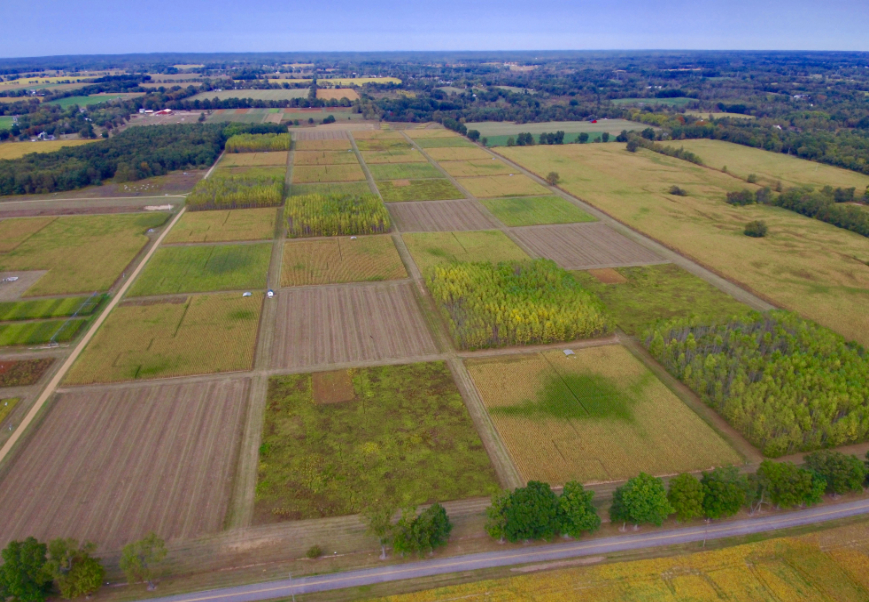
Credit: Kevin Kahmark
Minneapolis-St. Paul Metropolitan Area LTER
The Minneapolis-St. Paul (MSP) Long Term Ecological Research (LTER) program investigates how urban stressors affect ecological systems and structures of urban nature such as urban forests, watersheds, lakes, streams, and pollinator habitats. By studying the impact of contaminants, urban nature investments, and environmental policies, MSP LTER aims to improve urban ecological health and improve environmental outcomes for residents.
For their seed project, the MSP LTER is convening Minneapolis community members and urban forestry officials for a community-centered tour addressing emerald ash borer infestations and tree removal policies. Concerns have been raised that these removal practices disproportionately affect northside Minneapolis residents. Researchers, community partners, and officials will share knowledge and experiences of urban nature and examine the impacts of urban forestry policies and practices.
Participants: Mae Davenport, Holly Menninger
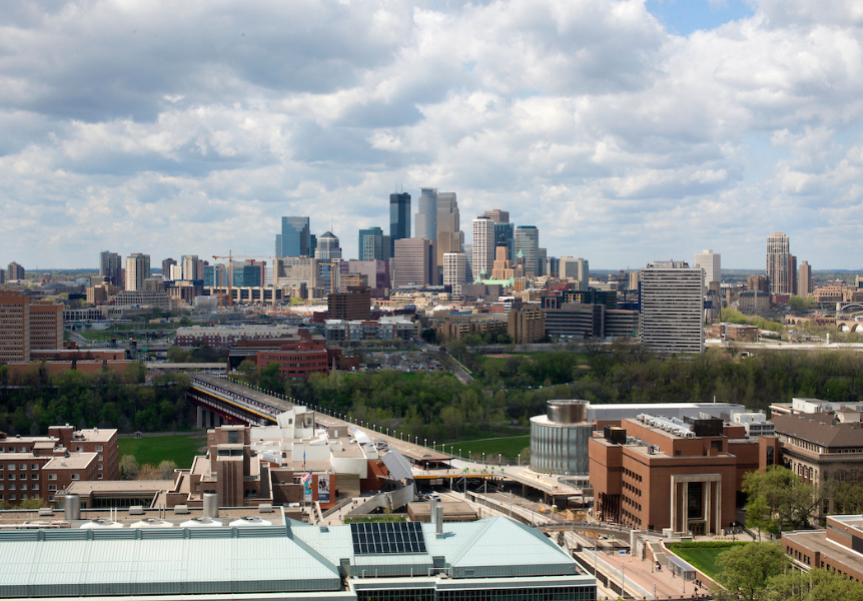
Credit: MSP LTER
Central Arizona-Pheonix LTER
The Central Arizona–Phoenix Long-Term Ecological Research (CAP LTER) program explores the complexities of urban ecology in the Phoenix metropolitan area and the surrounding Sonoran Desert. It focuses on the interactions between human and ecological systems, addressing topics like water use, climate change, and sustainable urban development.
Through the seed project, CAP seeks to strength relationships with Indigenous communities and expand ties to additional local tribes. Seed project funds supported the development and expansion of the “Living Lands” board game, created by CAP and ESSA REU students in 2022. This game integrates Indigenous language learning with ecosystem education. CAP is connecting with indigenous educators to tailor the game to specific regions and languages.
Participants: Dan Childers, Monique Franco, Michelle Hale
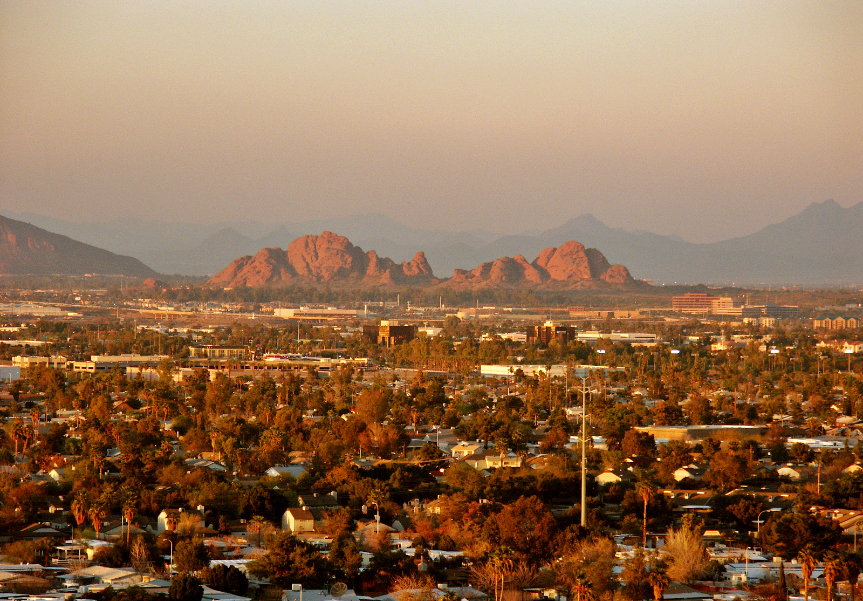
Credit: CAP LTER
Plum Island Ecosystems LTER
The Plum Island Ecosystems Long-Term Ecological Research (PIE LTER) program studies the estuary and marsh ecosystems of the Plum Island Sound in northeastern Massachusetts. Its research focuses on the impacts of sea-level rise, climate change, and human activities on coastal ecosystems, with the aim of informing policies to protect these environments. PIE LTER uses the Great Marsh as a model for estuarine changes worldwide.
The PIE seed project aims to engage the local shellfishing and aquaculture industries, whose livelihoods depend on healthy marsh ecosystems. PIE will host a listening session to understand their concerns and needs around shellfish, such as predation by invasive green crabs and habitat loss. By fostering dialogue, PIE LTER aims to explore how research can inform restoration efforts, build trust, and create collaborative research and management plans that reflect the needs of the fishing community while promoting ecosystem health and resilience.
Participants: Anne Giblin, Jane Tucker
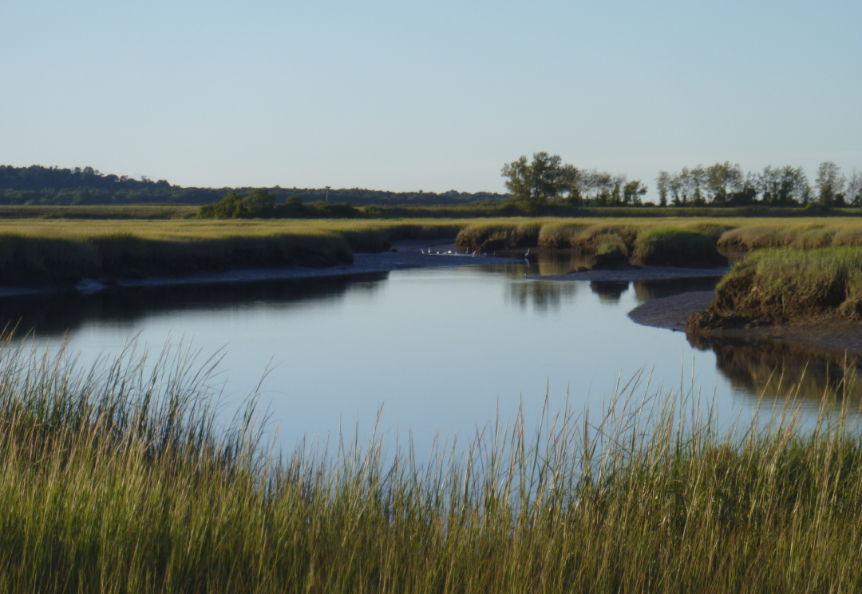
Credit: PIE LTER
Bonanza Creek LTER
The Bonanza Creek Long-Term Ecological Research (BNZ LTER) program investigates boreal forest ecosystems in Alaska, focusing on the impacts of climate change, wildfire, permafrost dynamics, and human activity. Research emphasizes ecosystem processes like nutrient cycling, carbon storage, and species interactions, aiming to improve understanding of boreal forest resilience and inform sustainable management.
Participants: Elena Sparrow, Michelle Mack, Katie Spellman
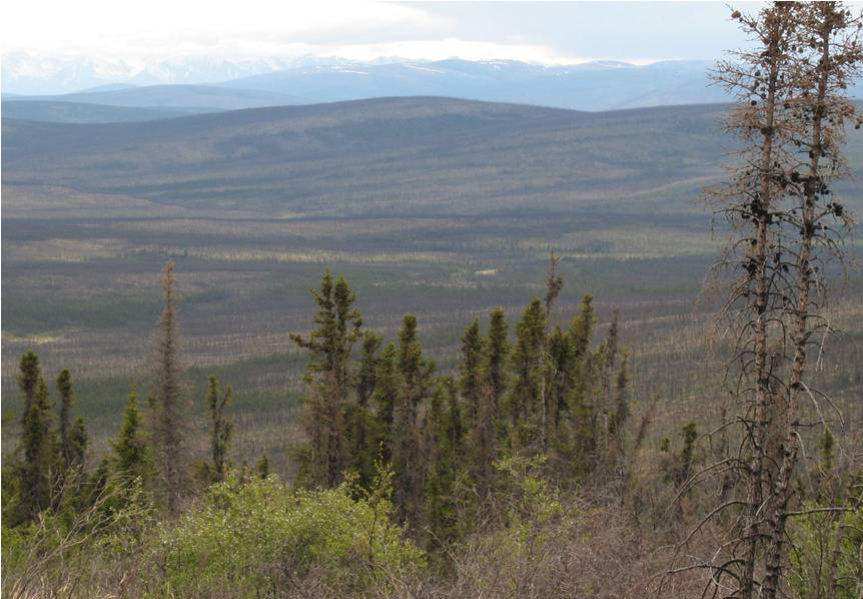
Credit: Jill Johnstone
Virginia Coast Reserve LTER
The Virginia Coast Reserve Long-Term Ecological Research (VCR LTER) program studies the dynamic coastal barrier ecosystems along Virginia’s Eastern Shore. Much of this area is composed of marshes, bays, lagoons, and barrier islands. VCR focuses on understanding how long-term environmental changes, such as climate and sea-level rise, interact with short-term disturbances like storms and species invasions. The VCR region experiences high relative sea-level rise, and the program aims to understand and predict these changes to inform conservation efforts.
Virginia Coast Reserve is a case study site – find more information about our work with them here.
Participants: Cora Baird, Matt Reidenbach
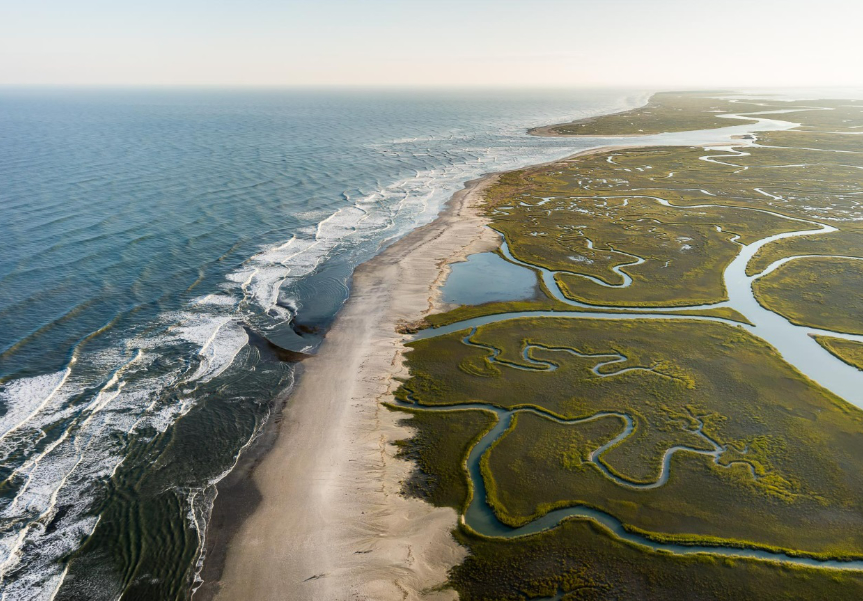
Credit: Gordon Campbell
Luquillo LTER
The Luquillo Long-Term Ecological Research (LUQ LTER) program studies how tropical forests in Puerto Rico respond to disturbances like hurricanes and drought. Research takes place in El Yunque National Forest and has been ongoing since 1940. Led by the University of Puerto Rico and the USDA Forest Service, along with various collaborators, LUQ LTER explores the impacts of extreme events on ecosystem dynamics, biogeochemical cycles, and species populations to better understand forest resilience and transitions under climate change.
Luquillo is one of the three case study sites and you can find more information about our work with them here.
Participants: Chris Nytch, Isabel Delgado, Noelia Baez Rodriguez
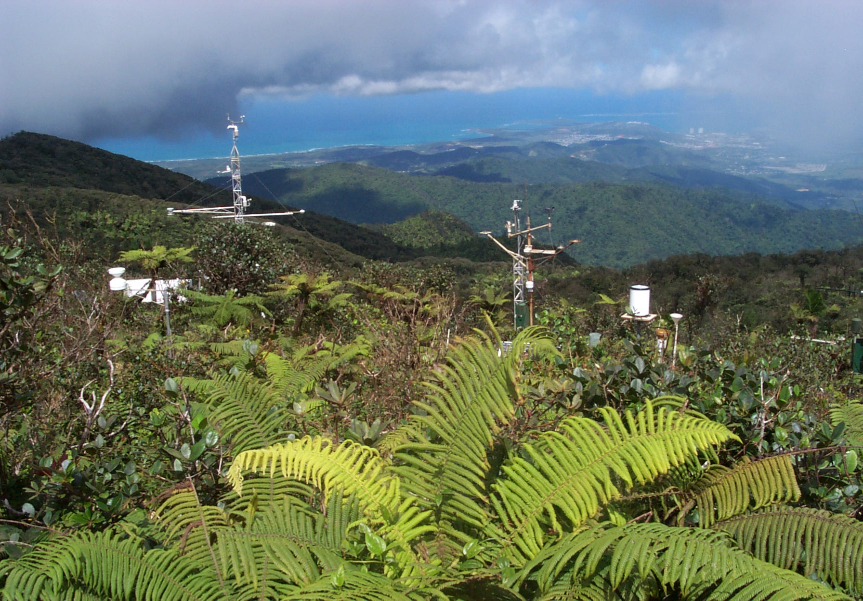
Credit: LUQ
Hubbard Brook LTER
The Hubbard Brook Long-Term Ecological Research (HBR LTER) program investigates how northern forest ecosystems respond to disturbances such as air pollution, climate change, and invasive species. Ongoing since 1988, research focuses on atmospheric chemistry changes, climate change, and biotic interactions, exploring their effects on forest biogeochemistry, hydrology, and biodiversity. Over the past decade, public engagement efforts have fostered reciprocal relationships with regional communities through dialogue programs, public events, and participatory research.
Hubbard Brook is another case study site – find out more about their experience with public engagement with science here.
Participants: Anthea Lavalee, Andrew Cassel, Peter Groffman, Pam Templer
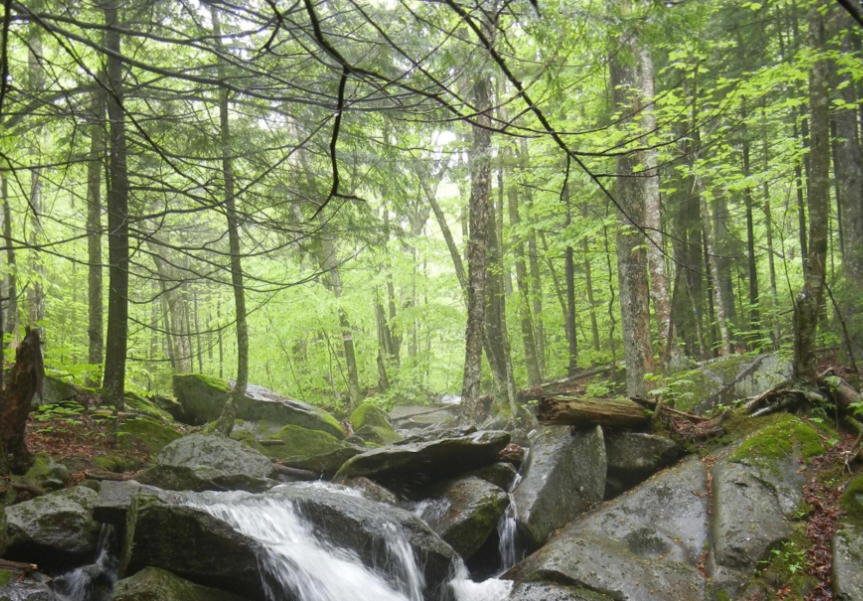
Credit: Clare Nemes
